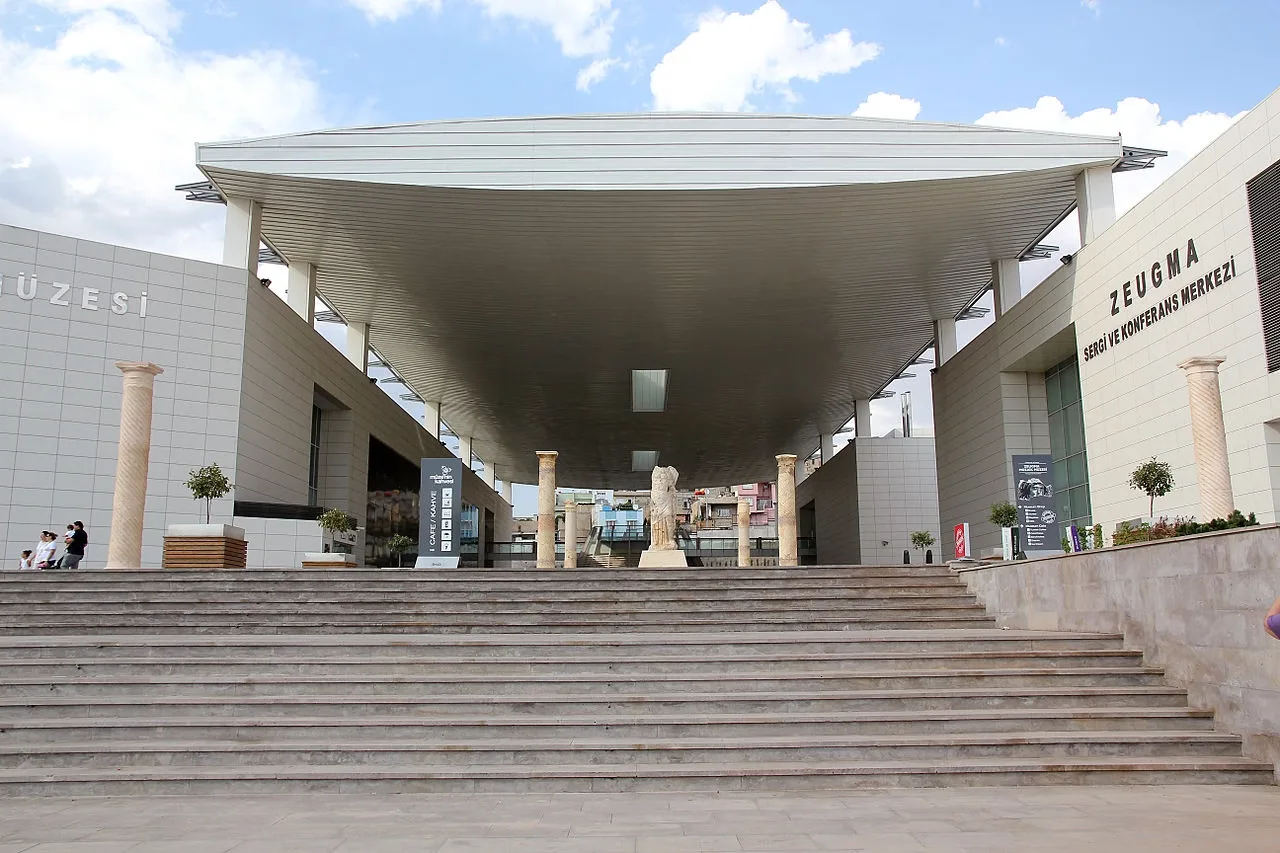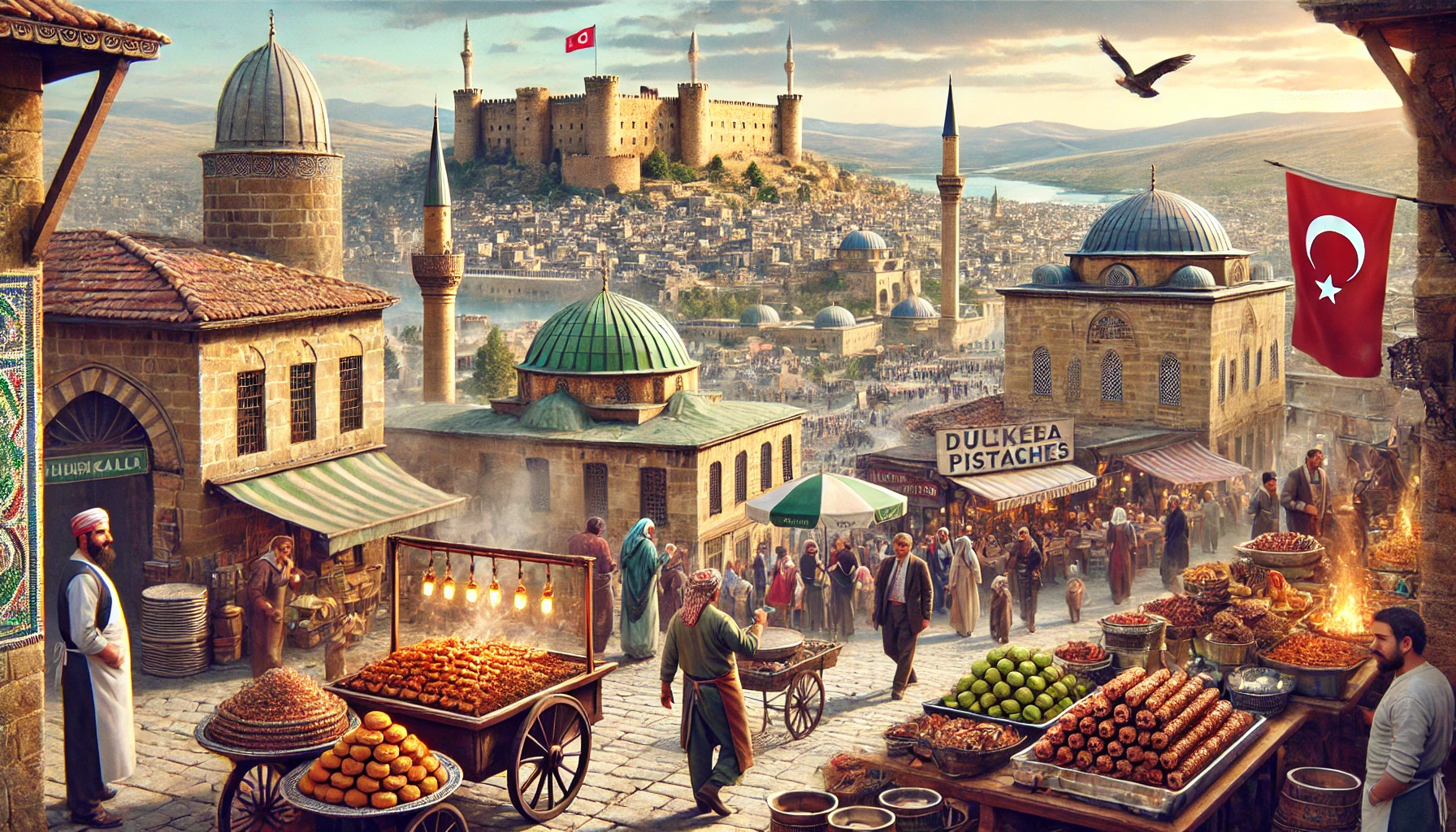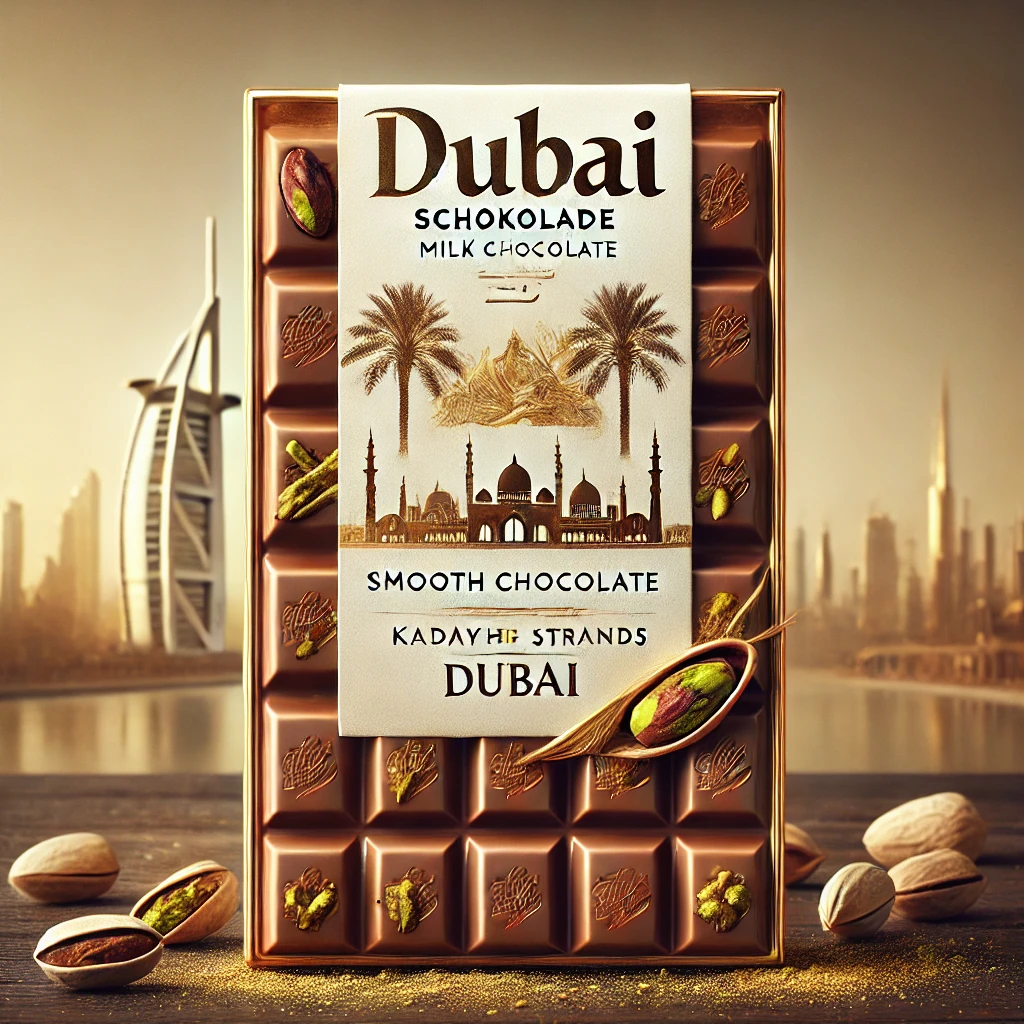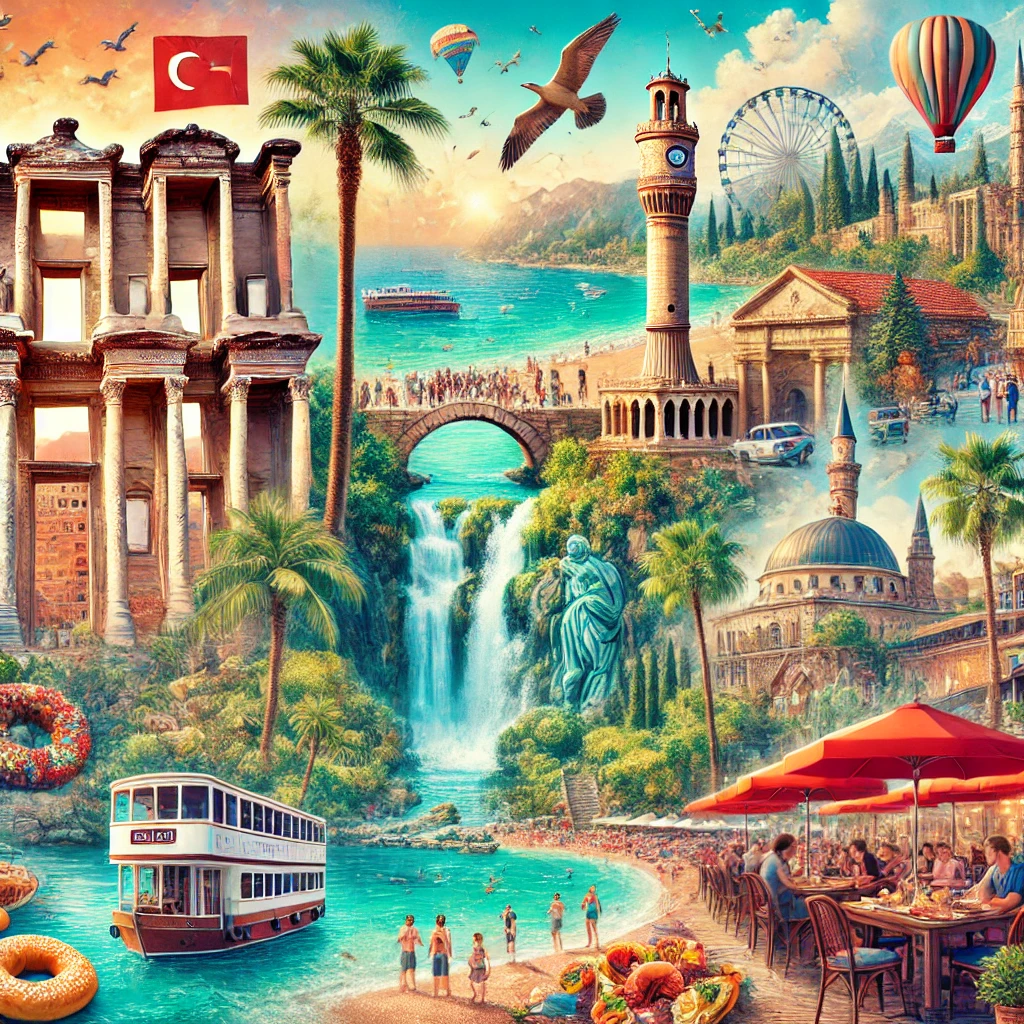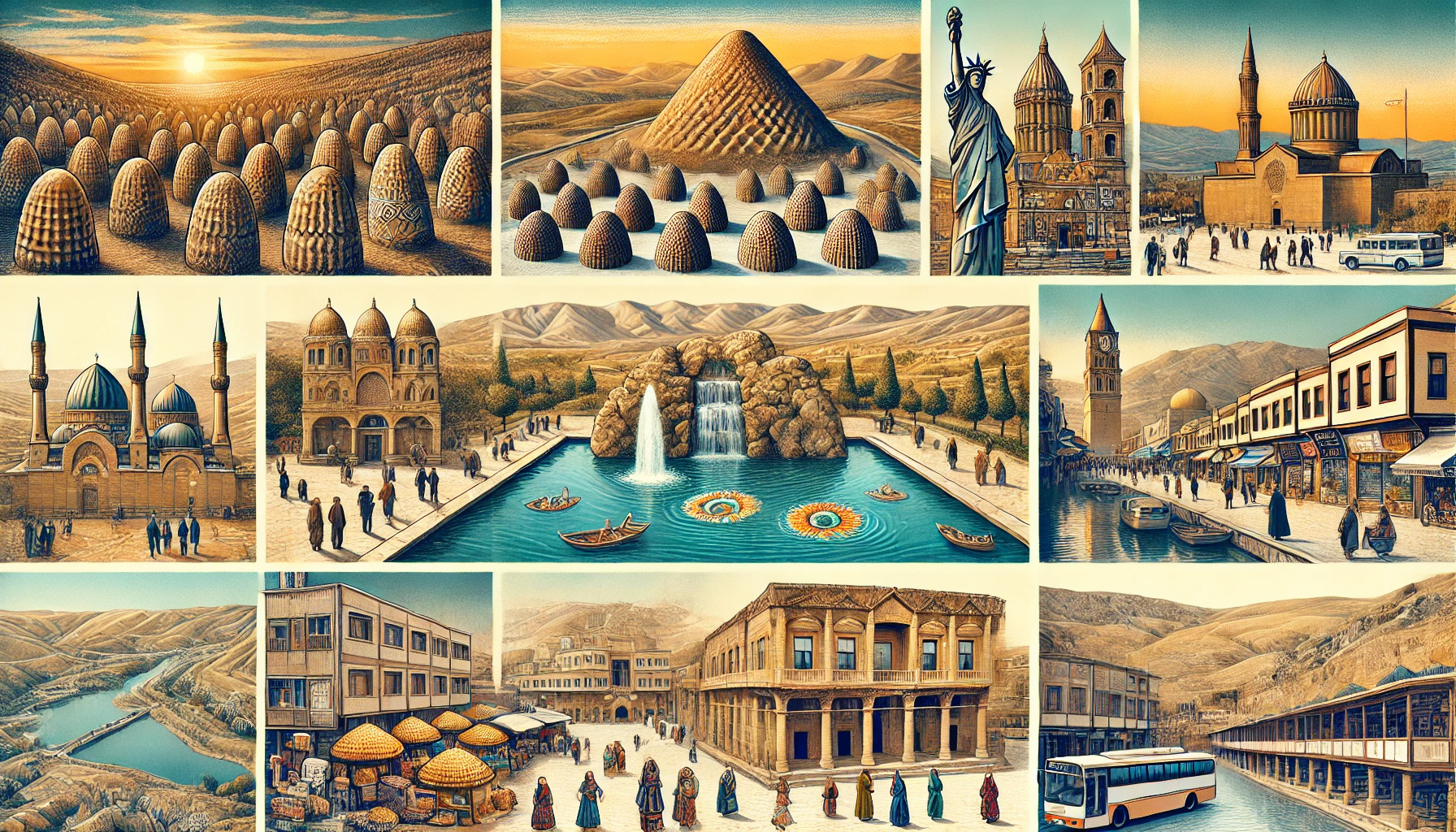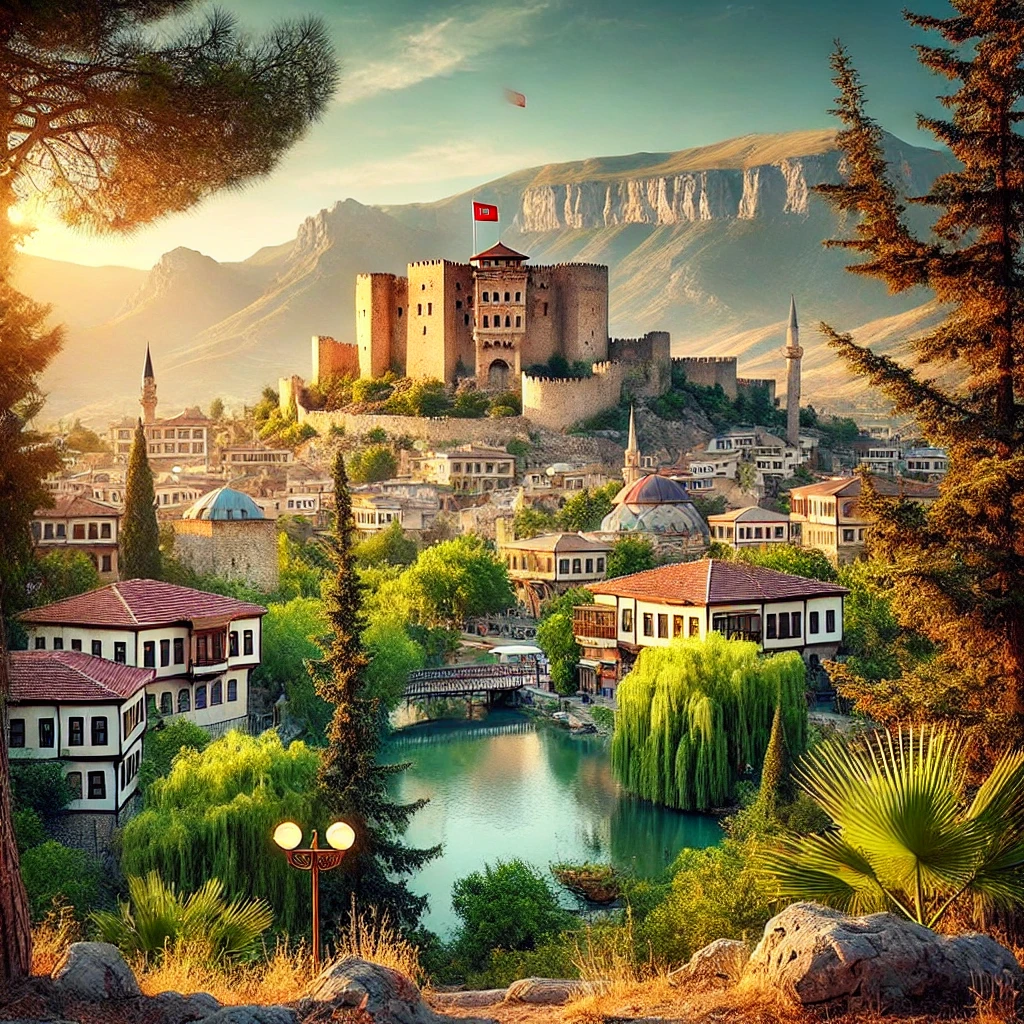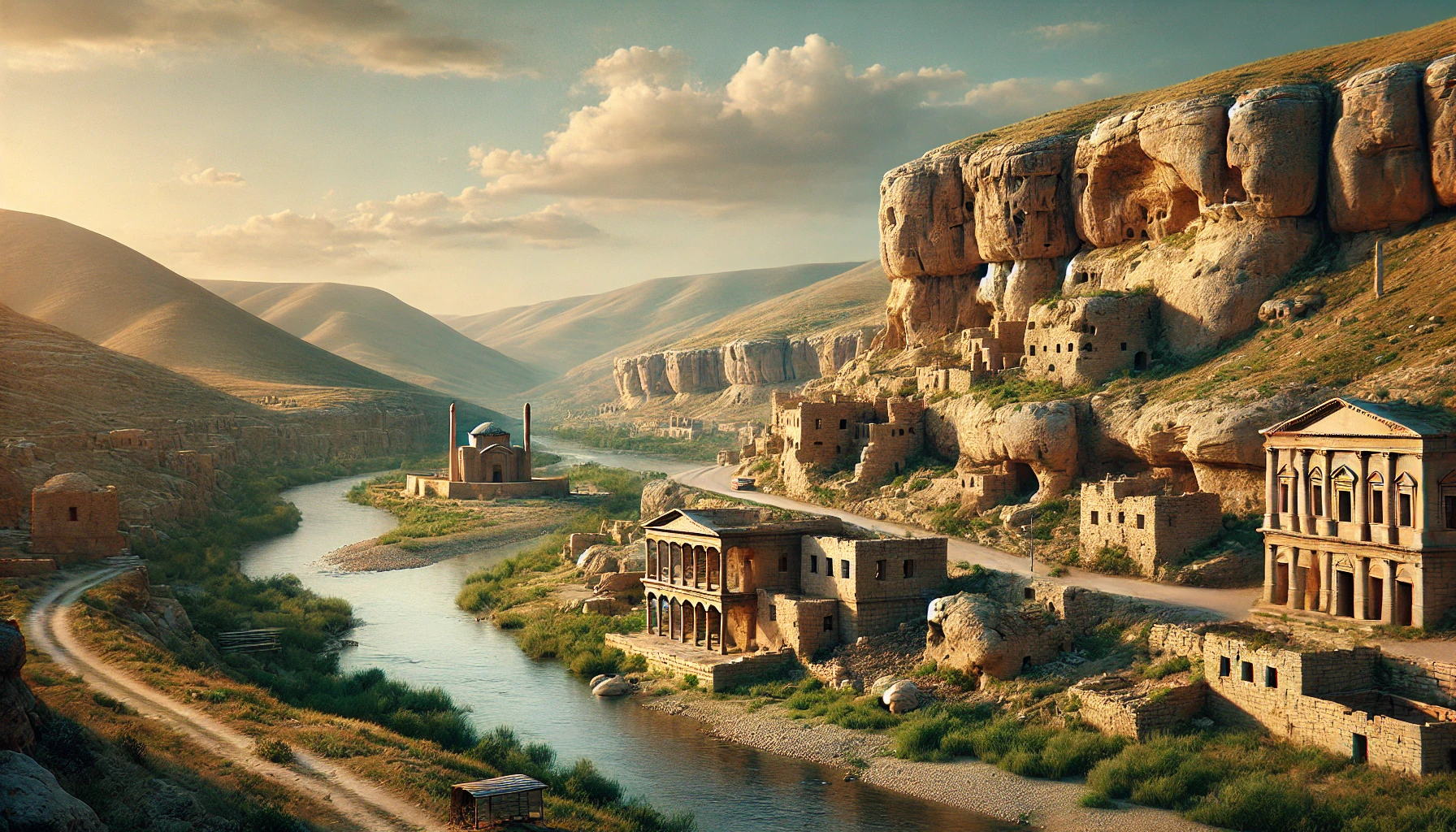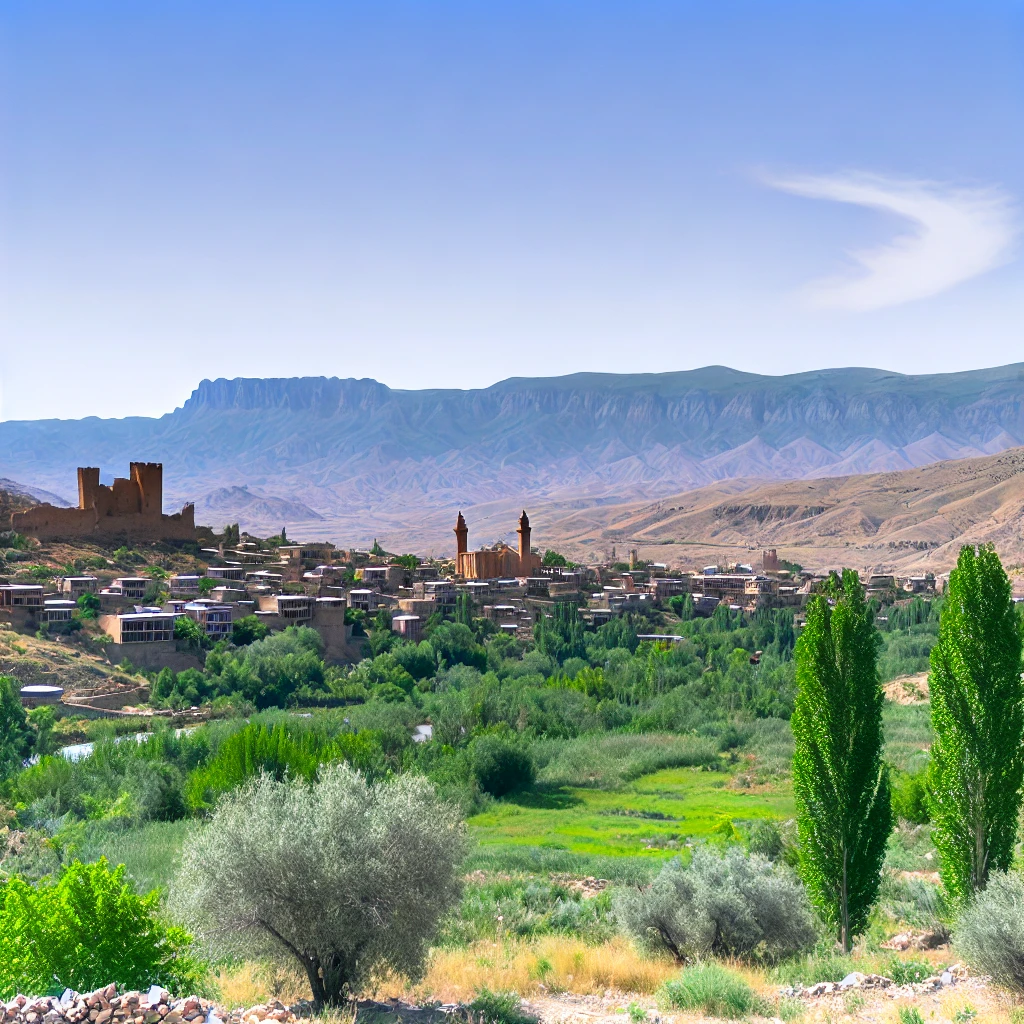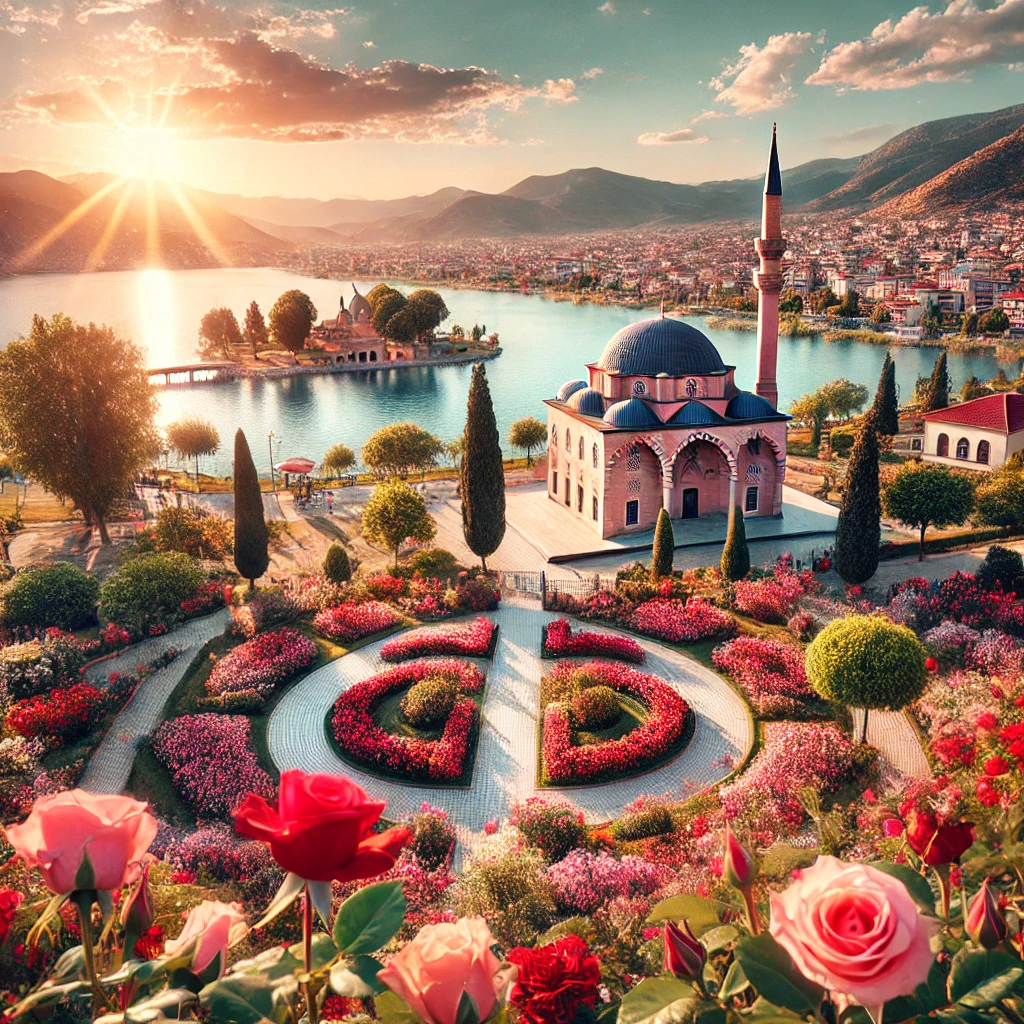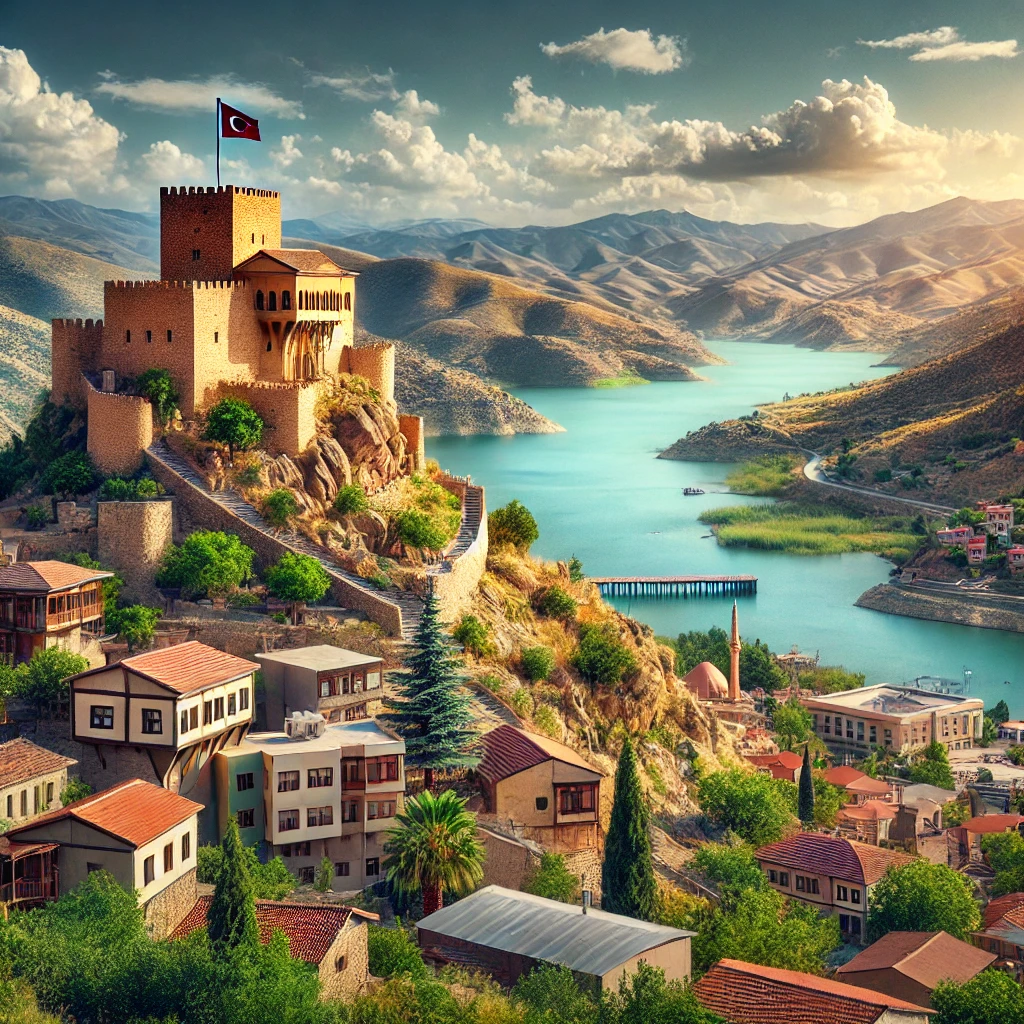Explore the Zeugma Mosaic Museum: Gaziantep’s Treasure Trove of Ancient Art and History
Zeugma Mosaic Museum in Gaziantep, Turkey, is an absolute must-visit for anyone interested in ancient history and art. Known as the largest mosaic museum in the world, it houses an incredible collection of mosaics excavated from the ancient city of Zeugma. These mosaics, which are over two thousand years old, showcase the exquisite craftsmanship of Roman artists. The museum is one of the most interesting and unique museums in Turkey, offering a glimpse into the rich cultural heritage of the region.
1. Introduction to Zeugma Mosaic Museum
The Largest Mosaic Museum in the World
The Zeugma Mosaic Museum holds the distinction of being the largest mosaic museum in the world. The museum spans over 30,000 square meters and features numerous exhibition halls that display a vast array of ancient mosaics. These mosaics, dating back to the Roman period, are remarkably well-preserved and provide invaluable insights into the art and culture of ancient civilizations.
Location and Accessibility
Location: Mithatpaşa, Hacı Sani Konukoğlu Blv., 27500 Şehitkamil/Gaziantep, Turkey
The museum is located in the city of Gaziantep, in southeastern Turkey. Gaziantep is easily accessible by air, with regular flights from major Turkish cities like Istanbul and Ankara. The museum is situated in the Şehitkamil district, which is well-connected by public transport, making it convenient for visitors to reach.
Timings and Entry Fee
- Timings: 9 am – 6.30 pm
- Entry Fee: 30 Turkish Lira per person
The museum is open daily, providing ample opportunity for visitors to explore its extensive collection.
2. Historical Background of Zeugma
The Ancient City of Zeugma
Zeugma was an ancient city founded by Seleucus I Nicator, one of Alexander the Great’s generals, in the 3rd century BCE. The city was strategically located on the banks of the Euphrates River and became a significant center of trade and commerce during the Roman period. Zeugma flourished as a cultural and economic hub, attracting merchants and artisans from various regions.
The Discovery of the Mosaics
The discovery of the mosaics at Zeugma was a remarkable archaeological find. Excavations began in the late 20th century, revealing the city’s rich history and artistic heritage. The mosaics, which adorned the floors of luxurious Roman villas, depict various mythological scenes, daily life, and intricate geometric patterns.
The Significance of the Mosaics
The mosaics of Zeugma are renowned for their artistic excellence and intricate detailing. They provide a window into the lives, beliefs, and artistic sensibilities of the people who lived in Zeugma over two thousand years ago. The craftsmanship displayed in these mosaics is a testament to the skills and creativity of the Roman artists who created them.
3. Exploring the Museum’s Collections
The Gypsy Girl Mosaic
One of the most famous exhibits at the Zeugma Mosaic Museum is the Gypsy Girl mosaic. This mosaic, also known as the “Mona Lisa of Zeugma,” is celebrated for its expressive eyes and lifelike portrayal. The mosaic’s detailed craftsmanship and the mysterious aura of the Gypsy Girl make it a highlight of the museum.
The Dionysus Mosaic
Another notable mosaic is the depiction of Dionysus, the Greek god of wine, revelry, and theatre. This mosaic illustrates a scene from a Dionysian festival, showcasing figures dancing and celebrating. The vibrant colors and dynamic composition of the mosaic capture the festive spirit of the ancient celebrations.
The Oceanus and Tethys Mosaic
The Oceanus and Tethys mosaic is a stunning portrayal of the sea god Oceanus and his wife, Tethys. This large mosaic adorned the floor of a grand Roman villa and is characterized by its intricate detailing and harmonious composition. The depiction of marine life and mythological creatures adds to the mosaic’s charm and artistic value.
Geometric Patterns and Decorative Mosaics
In addition to figurative mosaics, the museum also features a variety of geometric patterns and decorative mosaics. These designs, with their precise symmetry and intricate detailing, highlight the mathematical and artistic skills of the Roman mosaicists. The use of vibrant colors and complex patterns creates a mesmerizing visual experience for visitors.
4. The Architecture of the Museum
Modern Design with Historical Elements
The architecture of the Zeugma Mosaic Museum is a blend of modern design and historical elements. The museum’s structure is designed to complement the ancient artifacts it houses, with spacious galleries and carefully controlled lighting that enhance the viewing experience. The layout of the museum allows for a seamless flow of visitors, making it easy to explore the extensive collections.
Exhibition Halls and Display Techniques
The museum features several exhibition halls, each dedicated to different themes and periods of the mosaics. The display techniques used in the museum are state-of-the-art, with interactive panels, digital reconstructions, and informative plaques that provide context and background information about the exhibits. This modern approach to displaying ancient artifacts enhances the educational value of the museum.
Conservation and Preservation Efforts
The Zeugma Mosaic Museum is also involved in ongoing conservation and preservation efforts. The museum employs advanced techniques to ensure the long-term preservation of the mosaics, protecting them from environmental factors and deterioration. These efforts are crucial in maintaining the integrity and beauty of the mosaics for future generations.
5. Things to Do at Zeugma Mosaic Museum
Explore the Huge Mosaic Collection
Visitors to the Zeugma Mosaic Museum can spend hours exploring the vast collection of mosaics. The detailed artistry and historical significance of the mosaics make each piece a unique treasure. Take your time to appreciate the intricate designs and the stories they tell.
Guided Tours
The museum offers guided tours that provide in-depth information about the mosaics and the history of Zeugma. Knowledgeable guides offer insights into the artistic techniques used and the cultural context of the mosaics, enriching the visitor experience.
Interactive Exhibits
Interactive exhibits and digital displays at the museum allow visitors to engage with the artifacts in a meaningful way. These exhibits provide additional information and interactive experiences that enhance understanding and appreciation of the mosaics.
Museum Shop
The museum shop offers a range of souvenirs, books, and replicas of the mosaics. It’s a great place to purchase keepsakes and educational materials that commemorate your visit to the museum.
6. Best Time to Visit Zeugma Mosaic Museum
Spring (April to June)
Spring is an ideal time to visit the Zeugma Mosaic Museum. The weather is mild and pleasant, making it comfortable to explore both the indoor and outdoor areas of the museum.
Autumn (September and October)
Autumn is another excellent time to visit. The cooler temperatures and fewer crowds make for a more enjoyable experience, allowing visitors to fully immerse themselves in the museum’s exhibits.
Summer and Winter
While summer can be hot and winter can be cold, the museum is climate-controlled, ensuring a comfortable visit year-round. However, visiting during the off-peak seasons may provide a quieter and more intimate experience.
7. Accommodation Options Near the Museum
Divan Gaziantep
Divan Gaziantep is a luxury hotel located close to the Zeugma Mosaic Museum. The hotel offers modern amenities, comfortable rooms, and excellent service, making it a great choice for visitors.
- Location: Conveniently located near the museum and other attractions in Gaziantep.
- Amenities: Free Wi-Fi, fitness center, spa, and on-site dining.
- Activities: The hotel can arrange tours and provide information on local attractions.
Tugcan Hotel
Tugcan Hotel is another excellent option for accommodation in Gaziantep. This upscale hotel offers stylish rooms, a range of amenities, and a central location.
- Location: Situated in the heart of Gaziantep, with easy access to the museum.
- Amenities: Free Wi-Fi, indoor pool, fitness center, and multiple dining options.
- Activities: The hotel offers concierge services to help guests plan their visit.
Other Accommodation Options
Gaziantep offers a variety of accommodation options to suit different budgets and preferences. From boutique hotels to budget-friendly guesthouses, visitors can find the perfect place to stay during their visit to the Zeugma Mosaic Museum.
8. Exploring the Surrounding Area
Gaziantep Castle
Gaziantep Castle is a historic fortress that offers panoramic views of the city. The castle has a rich history, with sections dating back to the Roman and Byzantine periods. Visitors can explore the castle’s ramparts, towers, and museum exhibits that detail the history of the region.
Gaziantep Cuisine
Gaziantep is renowned for its culinary delights, and no visit would be complete without sampling the local cuisine. The city is famous for its baklava, kebabs, and other traditional dishes. Visitors can explore the local markets and restaurants to experience the rich flavors of Gaziantep’s culinary heritage.
Other Nearby Attractions
Gaziantep is home to several other attractions, including museums, parks, and cultural sites. Some notable places to visit include:
- Gaziantep Zoo: One of the largest zoos in Turkey, featuring a wide variety of animals and beautiful gardens.
- Gaziantep Archaeology Museum: A museum that houses artifacts from various periods of Anatolian history.
- Bakırcılar Çarşısı (Coppersmith Bazaar): A vibrant market where visitors can find traditional copperware and handicrafts.
9. Tips for Visiting Zeugma Mosaic Museum
Plan Your Visit
- Check Opening Hours: The museum’s opening hours may vary, so it’s advisable to check in advance. The museum is usually open daily, with extended hours during peak tourist seasons.
- Dress Comfortably: Wear comfortable clothing and shoes, as you will be spending a significant amount of time walking and exploring the museum.
- Allocate Enough Time: The museum is extensive, so plan to spend several hours to fully appreciate the exhibits.
Guided Tours
Consider taking a guided tour to enhance your visit. Knowledgeable guides provide detailed information about the mosaics and the history of Zeugma, enriching your experience.
Photography
Photography is allowed in most areas of the museum, but be mindful of signs indicating restricted areas. The museum offers numerous photo opportunities, from the intricate mosaics to the modern architecture.
Respect the Artifacts
The mosaics are ancient and fragile, so it’s important to respect the exhibits. Avoid touching the mosaics and follow the museum’s guidelines to help preserve these treasures for future generations.
10. The Cultural Significance of Zeugma Mosaic Museum
A Window into the Past
The Zeugma Mosaic Museum provides a unique window into the past, showcasing the artistic and cultural achievements of ancient civilizations. The mosaics offer insights into the daily lives, beliefs, and artistic sensibilities of the people who lived in Zeugma over two thousand years ago.
Educational Importance
The museum serves as an educational resource, providing visitors with a deeper understanding of the history and art of the Roman period. Schools and educational institutions often organize field trips to the museum, making it an important site for learning and cultural enrichment.
A Source of National Pride
The Zeugma Mosaic Museum is a source of national pride for Turkey. It stands as a testament to the country’s rich cultural heritage and the efforts to preserve and showcase its historical treasures. The museum’s extensive collection and modern facilities attract visitors from around the world, contributing to Turkey’s cultural tourism.
The Zeugma Mosaic Museum is a treasure trove of ancient art and history, offering visitors a unique and enriching experience. As the largest mosaic museum in the world, it showcases the exquisite craftsmanship and cultural heritage of the ancient city of Zeugma. From the famous Gypsy Girl mosaic to the vibrant depictions of mythological scenes, the museum’s collections are a testament to the artistic achievements of the Roman period.
Whether you are a history enthusiast, an art lover, or a curious traveler, the Zeugma Mosaic Museum is one of the most interesting and must-visit museums in Turkey. Plan your visit to this incredible museum and immerse yourself in the beauty and history of ancient mosaics.
Latest Update: Aug 4, 2024
Your Content Goes Here
TAGS: ancient art, ancient mosaics, archaeological museum, best places to visit in Turkey, cultural heritage, Dionysus mosaic, Gaziantep, Gaziantep attractions, Gypsy Girl mosaic, historical artifacts, largest mosaic museum, mosaics, museum in Turkey, Roman art, things to do in Gaziantep, tourism, travel, Turkey, Turkish history, Zeugma Mosaic Museum
Welcome to Gaziantep
A brief summary of the key points in this article.
Latest Travel Guides
Weather Today in Zeugma Mosaic Museum, Gaziantep, Turkey
Temperature: 22.96°C
Condition: Clear sky

